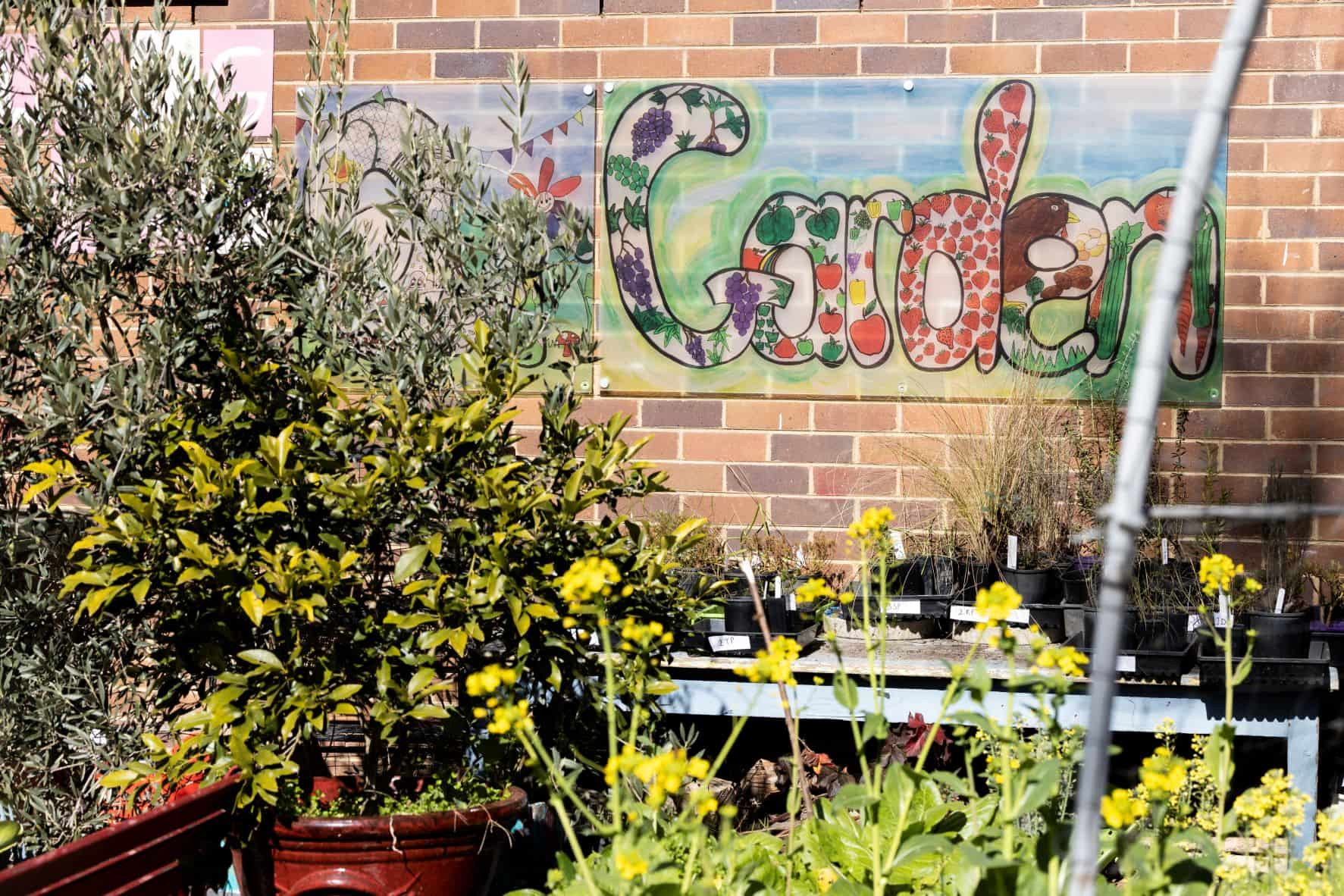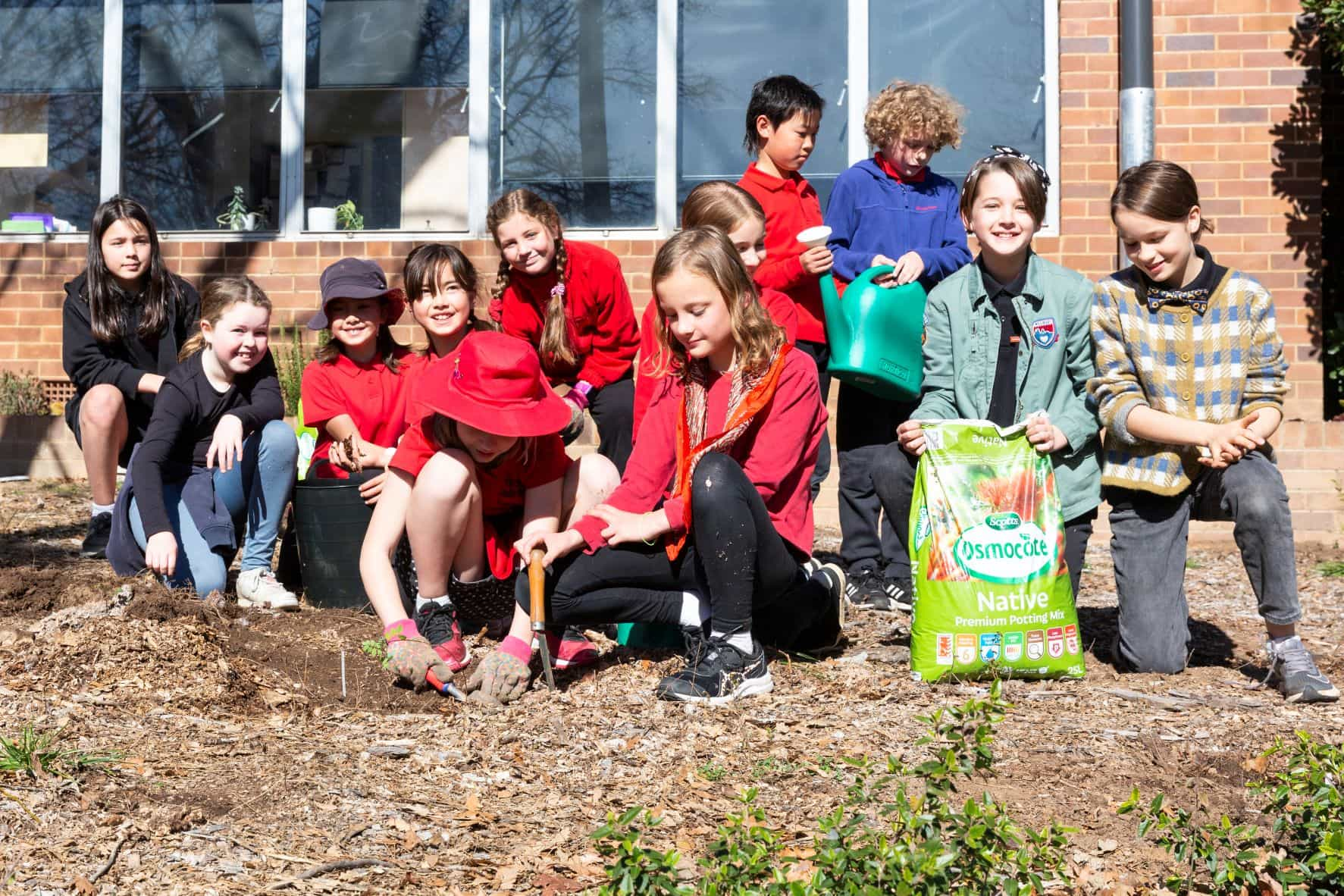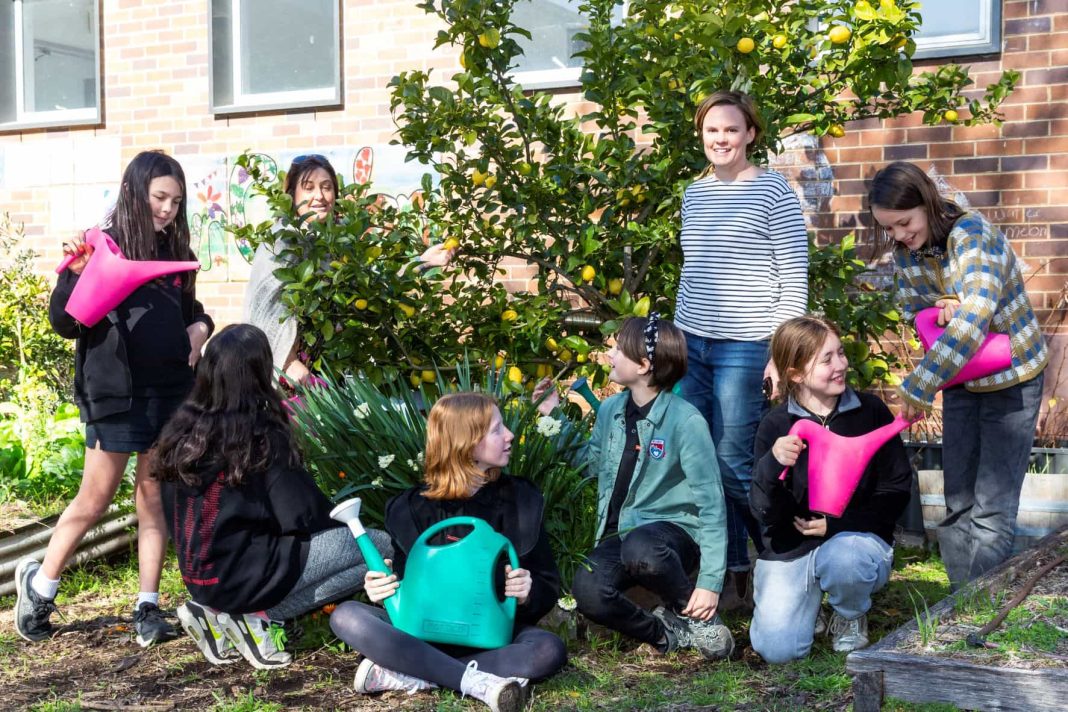The chatty and confident North Ainslie Primary School Year Six students are wise beyond their years, animatedly explaining to adults why adopting sustainable practices helps the environment.
The school is a recent recipient of a Woolworths Junior Landcare Team Award, and CW spent a sunny morning with the eager students to learn about their school regeneration project that stems from a drive for environmentalism.
Eleven-year-old Zoe Schofield is a member of the student-led Green-Team, which runs projects like the on-campus garden club.
Zoe says she loves learning about the environment and knows you can help it by planting “lots of plants”.
“For one, they [trees] give us oxygen and hold the soil together for the other plants and it also provides shade for all of the kids… and they’re just good for the environment in general,” she says. “…and if we keep burning fossil fuels and start not using sustainable options, then climate change is going to keep happening and our world is going to heat up – keep melting.”
Classmate and fellow Green-Team member, Suzy Edwards-Chew, also 11, is passionate about investing in a circular economy, and is proud to be doing her part to improve the planet.
“Sustainability is about never-ending resources and to sustain ourselves with resources because we only have so many and we don’t want to use it all up,” Suzy says.
“We don’t want to be going to the shops every single weekend buying a heap of clothing, chucking them in the bin, then buying more. That’s the opposite of sustainability.
“I like to know that I’m helping birds and other animals because their habitats are getting destroyed and lots of native wildlife, like cats, can sometimes destroy them, and lots of things related to climate change. And it’s very important to me that I’m playing my part to help.”


North Ainslie Primary School principal Tania Collis is proud of her students and the hard work of the engaged Parents and Citizens (P&C) Association who help the school run the Personal and Community Health (PACH) educational program.
At the heart of the program’s curriculum is integrating Aboriginal knowledge, focusing on traditional Ngunnawal land and cultural practices.
“We all did cultural integrity training, and it was really insightful in the ways that we do things and we don’t think about them,” says Ms Collis.
“This is Ngunnawal land, so if we’re going to redo this [school grounds], we need to talk to some Ngunnawal Elders and get their perspective on it.”
The school now employs an Indigenous Education Officer, who spends time teaching the children Ngunnawal culture and advises staff on best practices, and Ms Collis says he’s “fantastic.”
Since beginning the program, the principal says she’s noticed the students feel they’re able to contribute more to their community and have begun scheduling meetings with her to put in their two cents about important issues – like the canteen.
“It builds for them the idea that they’re going to impact on their community – not just around the environment – but it builds that sense of ‘I am part of the community, and I can take action’,” Ms Collis says.
“The reality is these kids will make a difference for all of us, and they’re learning about the importance of having the right trees for our gang gangs, or the right plants for bees …”
Ms Collis says she knows there are people in the Canberra community who may not value children spending part of their school days in the garden learning about sustainability.
To those naysayers, she says her students have become more switched on to the world thanks to the program.
“The world has moved on in terms of education from always sitting in a classroom in your rows and learning,” she said.
“There are other people who probably don’t think it’s important, but our parents do, and this is their community, and this is their school so it’s important to everyone that’s here.
“We’ve all got to look after the planet, we’ve all got to, and so we will be helping to guide a whole generation of kids to think about those things. So, it’s going to benefit everybody.”
Teacher Amy Pepper runs the PACH and says the Green-Team members are filled with passion and have been instrumental in the running of their events.
“The Landcare Award is really a reflection of the whole community contributing. We have this amazing P&C who have supported this project,” she says.
Ms Pepper says they approach the program with the students in a positive manner, because the sheer gravity of the impacts of climate change can feel disheartening to them.
“With sustainability topics, it can be really heavy for kids. It can be climate change and all these things that kids can’t actually, in their everyday, have an impact on,” she says.
“So, it’s a really positive way for them to come out, connect with nature, to connect with things that they can take action on.”
Both Ms Collis and Ms Pepper agree the boost to the North Ainslie Primary School students’ wellbeing since the program began has been immeasurable.
Asked if there was an end goal for the PACH program, Ms Collis laughs and shakes her head; they’ll keep planting trees with the kids for as long as they possibly can.
Canberra Daily would love to hear from you about a story idea in the Canberra and surrounding region. Click here to submit a news tip.



